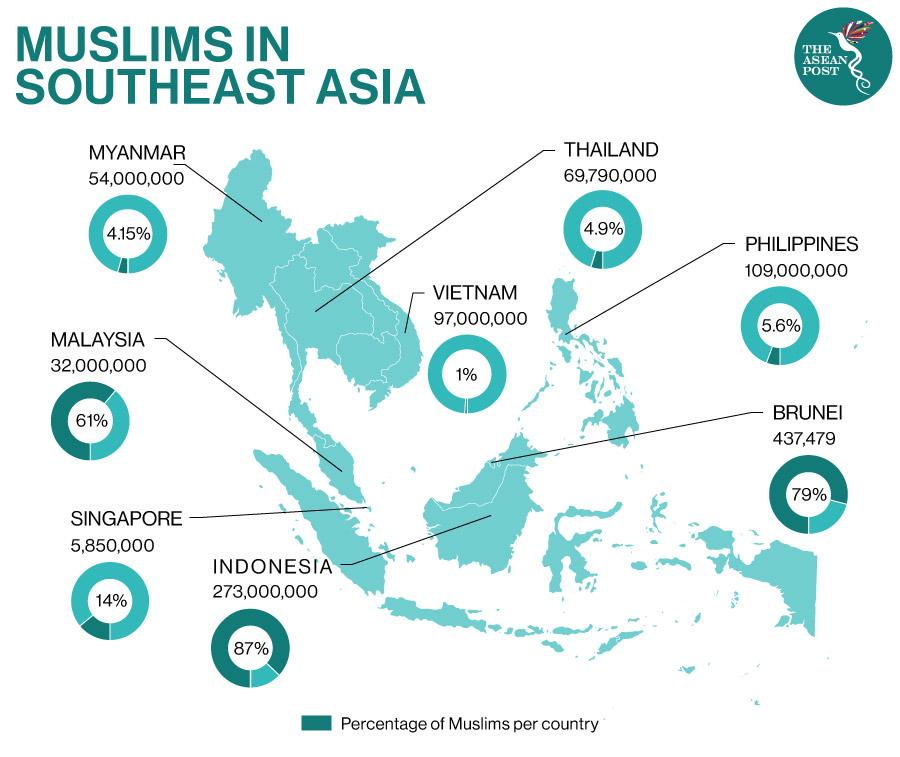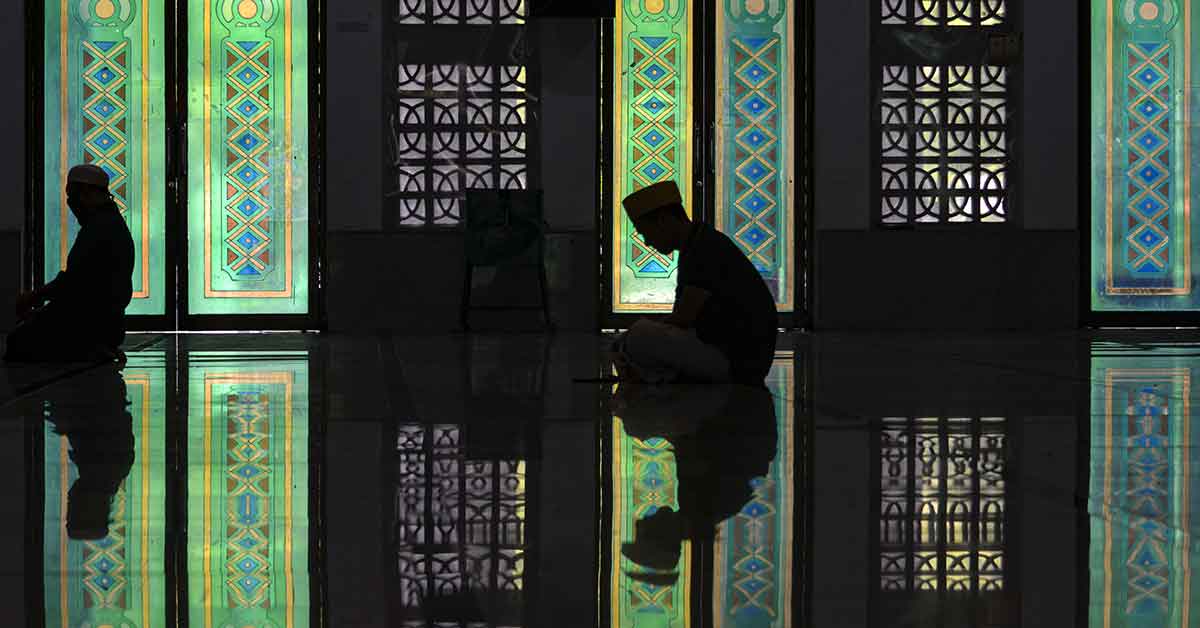The holy month of Ramadan for Muslims around the world will end this weekend. After about 30 days of fasting from dawn to sunset, an estimated 1.8 billion Muslims across the globe will celebrate Eid-ul-fitr which signifies the end of Ramadan.
Eid-ul-fitr is typically celebrated with morning prayers in congregations at mosques, a big feast, mass gatherings of family and friends and also new traditional clothes. However, this year, Eid celebrations will be extremely different.
The COVID-19 pandemic has drastically changed the way people live their lives now. Governments have imposed strict measures such as citywide lockdowns and travel restrictions to contain the spread of the deadly virus. Citizens are urged to practice social distancing, which means no hugs, no handshakes, no mass prayers and certainly no Eid exodus. One of the major traditions of Eid-ul-fitr in ASEAN member states Malaysia and Indonesia is the ‘open house’ – where family and friends visit each other continuously to celebrate the day. Many would begin the long journey to their hometown days – between states and provinces – before Eid-ul-fitr.
Unfortunately, for the first time in living memory, some of these Eid traditions would have to be squeezed out.
In Malaysia, where Eid-ul-fitr is generally celebrated for a month, it is a scene of quiet streets and empty stores in the capital city of Kuala Lumpur where hot spots for buying traditional clothes and Eid supplies are located. The country enacted its partial lockdown, known locally as the Movement Control Order (MCO) sometime mid-March and is due to end on 9 June. The government of Malaysia has announced a few guidelines for its people to follow during the Eid celebrations. This includes a ban of interstate travel, a ‘20-in-one-house’ rule and prayers by congregations limited to 30 or fewer people.
Senior Minister Ismail Sabri Yaakob recently warned Malaysians that the police and military will be conducting patrols during Eid-ul-fitr to ensure that standard operating procedures (SOP) under the MCO are being followed. He added that authorities will inspect houses if many vehicles are spotted in the vicinity.
“They might not be able to check all the houses, but if they find a lot of cars in front of a house, then they have the right to check the number of people inside,” said the minister, referencing the new ‘20-in-one-house’ rule whereby only 20 people are allowed in one house at a time during the Eid celebration.

In neighbouring Indonesia, where the Eid festive season accounts for nearly half of the country’s annual retail revenue – retailers are seeing sales fall by almost 90 percent. It was reported last month that the country with the largest Muslim population will push back its Eid-ul-fitr collective leave to December due to concerns that the annual exodus may cause the further spread of the COVID-19 virus.
According to local media reports, Muhadjir Effendy, Indonesia’s Coordinating Human Development and Culture Minister, has moved the four-day Eid-ul-fitr collective leave to 28-31 December, from 26-29 May.
Technology
Tech giants are said to be thriving during the pandemic.
Although nothing beats human interaction and face-to-face communication, thanks to technology – Muslims are thankfully able to keep some Eid traditions alive, albeit slightly differently.
Video conferencing applications such as Zoom, Skype and Houseparty have made remote working possible during virus lockdowns. While many are still practicing social distancing – these apps are likely to also be used to communicate with family and friends far from home during Eid.
Eid-ul-fitr is usually associated with precious time with family members. Technology makes it easy for people to stay in touch with loved ones during the festive season. Pictures taken during the celebration can also be shared easily on social media for family and friends to view. Social media platforms have an expanded network of cross-generational connections helping families of all ages to continue to strengthen their bonds and to keep each other updated online.
Other than that, just like the similar Chinese tradition of handing out ang paos during the Lunar New Year – packets containing cash – also known as ‘duit raya’ (Eid money) in Malaysia is made possible this year for Eid-ul-fitr through digital banking.
The virtual ‘duit raya’ can be distributed through selected banks and e-wallet services.
Malaysia’s Maybank has launched an ‘e-Duit Raya’ service which makes sending money much easier with QRPay and its new MAE (Maybank Anywhere Everyone) digital e-wallet.
By linking their bank accounts to e-wallet portals such as the MAE or GrabPay, users can now send a specified amount of money to their contacts – who can then cash it out at a bank or leave the money in their own e-wallet account for future use.
Eid Cluster?
According to media reports, as of Tuesday (19 May), a total of 3,212 vehicles in Malaysia were turned back by the country’s police after drivers and passengers failed to provide a valid reason for wanting to cross state borders. This has raised concerns that many would still try to pursue their interstate travel plans as Eid-ul-fitr draws closer.
Ismail Sabri Yaakob told local media in the country that those attempting to cross state borders will now be issued compounds instead of being asked to turn back.
Malaysia’s Health Minister, Dr Adham Baba has advised citizens celebrating Eid-ul-fitr to follow the SOP issued by his ministry in order to avoid a COVID-19 ‘Eid cluster’. He added that everyone must play their role in protecting their families and communities, including when travelling between districts, and even if they are in green zones.
This year’s Eid-ul-fitr will indeed be difficult and sad for many; the elderly in villages will be unable to see their children and grandchildren during the celebrations. It will be worse if there’s no internet connection to allow for video chatting with them. College students are now stuck in cities while their parents are back in their hometowns. Those who live alone in a different state will feel especially lonely this holiday season. Migrant workers too are not allowed to fly home to their families to celebrate Eid together.
Nevertheless, social distancing and virus restrictions are implemented to keep loved ones safe from the deadly COVID-19 virus. Going back to one’s hometown is not worth it if it means risking the lives of those who are vulnerable to the disease.
Related articles:
